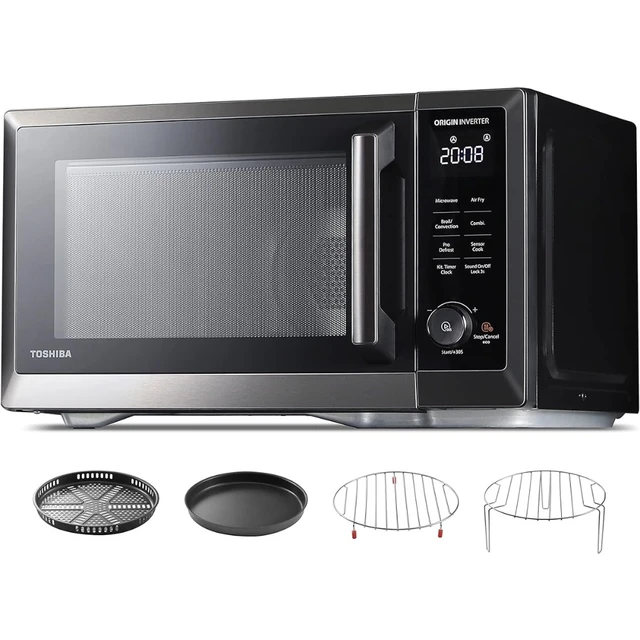Introduction:
Microwaves are a common household appliance used for cooking, heating, and defrosting food. While they do not require extensive maintenance compared to other appliances, some microwaves may have filters that require periodic cleaning. Understanding the presence and purpose of filters in microwaves is important for ensuring optimal performance, preventing damage, and maintaining a healthy environment in the kitchen. In this article, we will explore the presence of filters in microwaves, their various types and functions, the importance of cleaning them, and practical tips for maintaining a clean and efficient microwave.

Do all microwaves have filters to clean?
Importance of Filters:
Filters play a vital role in microwaves by capturing and trapping particles, odors, and grease that may be produced during cooking.
Filters help maintain cleanliness, improve air quality, prevent damage to the internal components, and ensure proper ventilation in the microwave.
Types of Filters in Microwaves:
a. Grease Filters:
Grease filters are commonly found in microwaves to capture grease particles and prevent them from entering the internal components or being released into the kitchen environment.
These filters typically consist of mesh or perforated screens designed to trap grease and prevent it from accumulating in the microwave.
b. Charcoal Filters:
Charcoal filters, also known as carbon filters, are responsible for absorbing odors and impurities generated during cooking.
These filters contain activated charcoal, which is effective in reducing unpleasant smells and maintaining a fresh environment in the kitchen.
c. Air Filters:
Some microwaves may have air filters to capture and filter out dust, allergens, and other airborne particles.
Air filters help improve indoor air quality and prevent these particles from circulating within the microwave or being released into the kitchen.
Presence of Filters in Microwaves:
Not all microwaves have filters as standard components.
The presence of filters depends on the specific model and brand of the microwave.
Higher-end or over-the-range microwaves are more likely to have filters due to their ventilation systems.
Cleaning Grease Filters:
Grease filters can become clogged with grease and food particles over time, affecting the microwave’s performance and air circulation.
Regular cleaning of grease filters is essential to maintain optimal airflow and prevent grease buildup.
Follow the manufacturer’s instructions for removing the grease filter from the microwave.
Soak the filter in warm, soapy water, and gently scrub it with a soft brush to remove grease and debris.
Rinse the filter thoroughly and allow it to air dry before reinstalling it in the microwave.
Replacing Charcoal Filters:
Charcoal filters have a limited lifespan and may need to be replaced periodically, as they lose their effectiveness over time.
Consult the microwave’s user manual or contact the manufacturer to determine the recommended replacement schedule for charcoal filters.
When replacing a charcoal filter, follow the manufacturer’s instructions and ensure you use the correct replacement filter specified for your microwave model.
Frequency of Cleaning:
The frequency of cleaning filters depends on various factors, such as cooking habits, the type of food cooked, and the ventilation system of the microwave.
Charcoal filters usually have a longer lifespan but still require replacement according to the manufacturer’s recommendations.
Check the user manual or contact the manufacturer for specific guidelines on cleaning and replacing filters for your microwave model.
Regular Maintenance:
Regular maintenance of a microwave can help prevent excessive buildup of grease and debris in the filters.
Wipe down the interior of the microwave regularly with a damp cloth to remove any spills or splatters.
Clean the exterior of the microwave using mild soap and water, avoiding abrasive cleaners that can damage the surfaces.
Ensuring Proper Ventilation:
Adequate ventilation is crucial for the optimal performance of a microwave and to prevent the accumulation of odors and moisture.
Ensure that the venting system of the microwave is unobstructed and free from debris.
If the microwave has an exhaust fan, check and clean the vent covers regularly to ensure proper airflow.
Professional Maintenance and Servicing:
If you are unsure about how to clean or replace filters in your microwave, consult the user manual or contact the manufacturer for guidance.
Professional technicians can also provide assistance and perform maintenance tasks if necessary.
Conclusion:
While not all microwaves have filters, they are essential components in some models to capture grease, odors, and airborne particles. Grease filters, charcoal filters, and air filters help maintain cleanliness, improve air quality, and protect the internal components of the microwave. Regular cleaning of grease filters and replacement of charcoal filters are important to ensure optimal performance and prevent grease buildup or odor retention. Follow the manufacturer’s instructions for cleaning and replacing filters, and consult the user manual if you are uncertain about the process. Regular maintenance, including wiping down the interior, cleaning the exterior, and ensuring proper ventilation, will contribute to the overall cleanliness and efficiency of the microwave. By maintaining clean and functional filters, you can prolong the lifespan of your microwave and ensure a healthy cooking environment in the kitchen.

